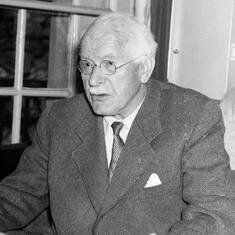Facts on the ground make this an especially unpropitious time for a diplomatic tight-rope walk. Since October 1, when two Israeli settlers in an illegal settlement in Palestine were shot dead, unrest has escalated, claiming 25 Palestinian lives. Many of these have fallen victim to lynch mobs of Israeli extremists, rousing themselves to action with now-familiar “Death to the Arabs” calls. Typically, this chant is accompanied by the extremist battle-cry “Am Yisrael chai”, or “the Jewish people lives”.
Despite Israel’s evident unease, the Indian President’s delegation has underlined the symbolism of his planned visit to the Palestinian Al Quds University in Jerusalem. Even as arrangements were being finalised, a shipment of Information Technology hardware from India for a computer centre the President was to inaugurate at Al Quds, was detained by Israeli customs. Israel will not easily relent from its posture that every institution of Palestinian civic life is a breeding ground of terrorism.
The figleaf
Ongoing unrest is greatly aggravated by unilateral Israeli moves to change the rules of access to the Haram al-Sharief, a site of immense religious significance in Palestine. Israeli Prime Minister Benjamin Netanyahu has dismissed all such accusations as incitement by the Palestinian leadership. But his own intimacy with extremist settlers intent on reclaiming the site as exclusive Jewish patrimony, is very poor testament for his credibility.
The figleaf of the peace process was the basis for India's recognition of Israel in 1992. Yet there has since never been the faintest sign of good faith on Israel’s part since its objectives did not go far beyond finding a Palestinian proxy to police its occupation.
In recent years, Israel has insisted on recognition of the eternally Jewish character of the territory it controls as a precondition for resuming talks, while provocatively continuing with settlements on occupied land. In evident frustration, Mahmoud Abbas, the most conciliatory Palestinian leader Israel is ever likely to get, announced at the United Nations General Assembly just days ago, that the PA would no longer be bound by the 1993 Oslo Accord.
Abbas promised a bombshell but retreated in characteristic timidity afterwards, holding out a vague threat of unspecified future actions. A day later, Netanyahu took to the podium at the United Nations General Assembly with a 45-minute diatribe interspersed with the settler battle-cry “Am Yisrael Chai." Most of the his speech was spent demonising Iran and embellishing the mythology of the Jewish nation and its exclusive claim to Palestine.
A pivot to the extreme right
Severely challenged in terms of basic civility, Netanyahu has used every appearance on overseas platforms to deliver angry screeds against the imagined crimes of history. In March this year, he addressed the United States Congress in a brazen effort to undermine negotiations then underway to curb Iran’s nuclear programme. And while sketching a scare scenario of mortal danger to Israel’s survival, Netanyahu reached for Biblical analogies and invoked a sinister Persian viceroy’s plot against the Jewish people from two-and-a-half millennia back.
The malevolent emergence of the Islamic State militia in the West Asian region, did not make Iran a potential ally of the west, said Netanyahu. In the deadly game underway, there would be “no place for America or for Israel, no peace for Christians, Jews or Muslims who don't share the Islamist medieval creed, no rights for women, no freedom for anyone”.
Rhetorically, these were overtures to the most extreme religious bigots in the U.S. and elsewhere. Then facing a tense electoral battle at home, Netanyahu pinned his hopes on retaining the loyalty of the fanatical right-wing that is now mainstream in Israel. As polls neared, he warned about a sinister left conspiracy to depose him, before playing his final card and vowing that a Palestinian state would never become reality under his watch.
That pivot to the extreme right transformed a losing position into victory. After weeks of negotiations, when Netanyahu put together a narrow majority in parliament, it was in alliance with Israel’s most reactionary elements. Today, as unrest escalates, his chilling avowal that crackdowns and home demolitions will continue, convey nothing by way of conciliatory intent.
Serious hazards
Israel's role in the ongoing chaos and violence in the Arab world cannot be discounted, including well-founded suspicions of assistance rendered to extreme Islamists in Syria. Deepening ties at this time with Israel, will draw India into a strategic posture fraught with serious hazards.
India’s presidential visit comes just over a year since Israel’s brutal assault on Gaza which killed over 2,000 Palestinians, the vast majority of them civilians and a large number being children. Vacuously and with little purpose, India’s parliament debated the matter in July last year, since the treasury benches refused to allow voting on a resolution of condemnation.
Later that month, India voted for a motion in the United Nations Human Rights Council calling for an investigation into suspected war crimes in Gaza. In July this year, India abstained from a vote in the same forum, referring its findings to the International Criminal Court.
Various tortured explanations have been advanced by the Indian foreign policy establishment for this sequence of flip-flops. There has been no escape from the fact though, that opportunism rather than principle is now the dominant motif in India’s approach towards one of the world’s most combustible regions.










